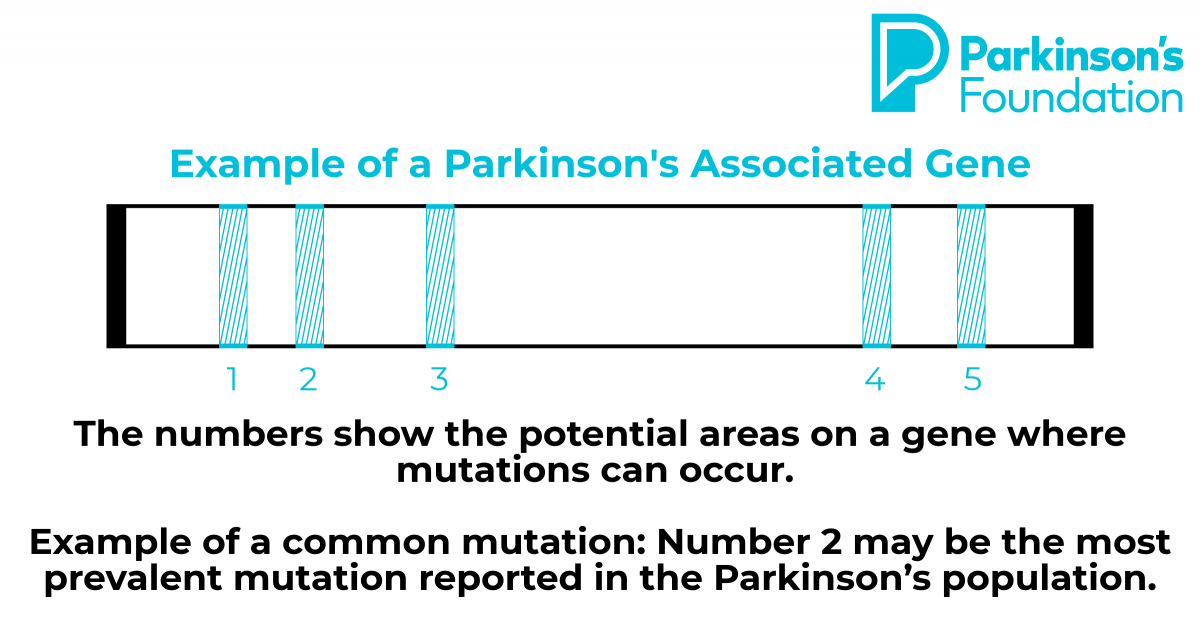Parkinson’s disease is a neurodegenerative disorder that affects the nervous system, causing symptoms such as tremors, slow movement, and balance problems. For many people, the question of whether Parkinson’s is hereditary is a pressing concern, especially if they have a family member with the condition.
The short answer is: While Parkinson’s disease can be hereditary in some cases, the vast majority of people with this condition do not inherit it from their parents. Recent research reveals that approximately 90% of Parkinson’s cases occur without a known genetic variant, meaning most people won’t pass on a genetic risk through their DNA.
This article will explore the complex relationship between genetics and Parkinson’s disease, including how heredity plays a role, what specific genes are involved, and what it means for families considering genetic testing or family planning.
Understanding the Genetic Link
According to the Parkinson’s Foundation, approximately 13% of people with Parkinson’s have a genetic link to the disease. This means that in some families, changes in the DNA code of certain genes—known as genetic mutations or variants—are inherited or passed down from generation to generation.
Some ethnic groups more commonly carry variants in genes linked to Parkinson’s. Researchers are still trying to understand why these variations exist and how they contribute to the development of the disease.
However, most people with Parkinson’s (almost 90%) have no known genetic variant contributing to their PD. This means it is unlikely they will “pass on” a genetic risk for Parkinson’s to their children through their DNA.
The Role of Environmental Factors

While genetics play a role in some cases, scientists believe that Parkinson’s disease results from a complex interaction between environmental factors and genetics. A person who is genetically predisposed to Parkinson’s might be exposed to certain environmental factors like pesticides and herbicides, or have lifestyle choices such as exercise, smoking, or caffeine consumption that can influence the risk of developing the disease.
In rare instances when multiple family members have Parkinson’s, variants in certain genes are inherited that are more likely to contribute to the development of PD. However, even in these cases, there is no guarantee that the disease will develop.
Key Genes Linked to Hereditary Parkinsonism
Scientists have identified several key genes associated with familial parkinsonism:
- LRRK2 gene: The most common genetic cause of hereditary parkinsonism, with the G2019S mutation being particularly significant. This mutation affects up to 20% of Ashkenazi Jews and 40% of North African Arabs with Parkinson’s.
- SNCA gene: Directly linked to early-onset Parkinson’s and follows autosomal dominant inheritance patterns.
- Parkin gene (PARK2): Causes autosomal recessive forms of early-onset Parkinson’s disease, accounting for up to 50% of cases with onset under 25 years.
- PINK1 gene (PARK6): Responsible for 2-4% of early-onset cases in Caucasians and 4-9% in Asians.
- DJ1 gene (PARK7): A very rare cause of autosomal recessive Parkinson’s disease, with 100% penetrance in carriers.
- GBA gene: A major genetic risk factor rather than a direct cause, found in 7% of Caucasian Parkinson patients compared to only 1% of healthy controls.
These genes follow different inheritance patterns depending on which specific gene carries mutations:
- Autosomal Dominant Pattern: If LRRK2 or SNCA genes carry mutations, you only need one altered gene copy from one parent to potentially develop Parkinson’s.
- Autosomal Recessive Pattern: If PARK2, PINK1, or PARK7 (DJ1) genes are involved, you need altered copies from both parents.
What Does It Mean to Carry a Genetic Variant?

If you carry a variant in a gene related to Parkinson’s, it may affect your risk of developing the disease. Ongoing clinical trials are testing new treatments for people with Parkinson’s who carry specific gene variants. Knowing whether someone has a gene variant, and which one, can be important for accessing these trials.
It’s also important to note that even if genetic testing reveals you carry a mutation associated with Parkinson’s, it doesn’t mean you’ll definitely develop the condition. For example, carriers of the common LRRK2 G2019S mutation have about a 75% chance of being diagnosed by age 80, meaning 25% never develop symptoms.
Should I Take an At-Home Genetics Test?
Genetic tests are not a substitute for a diagnosis. Always consult with a genetic counselor before and after taking a genetic test. Most at-home genetic tests check for a limited number of genetic variants linked to Parkinson’s and can be misleading. It is possible that those who test negative may still develop Parkinson’s, as the tests are incomplete and other PD-associated genes have yet to be discovered.
The Parkinson’s Foundation study, PD GENEration, offers genetic testing and counseling at no cost for those with a confirmed Parkinson’s diagnosis. People with Parkinson’s can participate in-person or from home.
The Future of Parkinson’s Research

As our understanding of the genetics of Parkinson’s disease expands, families can make more informed decisions about genetic testing and counseling, disease monitoring, and lifestyle modifications that may influence their risk of developing the disease.
The future of Parkinson’s disease research increasingly focuses on personalized medicine approaches that consider both genetic risk and environmental factors. This includes targeted therapies for individuals with specific genetic mutations, such as LRRK2 and GBA trials.
Practical Implications for Families
For most families, the risk of developing Parkinson’s disease remains low regardless of family history. However, those with confirmed genetic mutations may benefit from participating in clinical trials targeting specific genetic variants.
If you’re concerned about whether Parkinson’s is hereditary in your family, especially if you have a family history or notice early warning signs like tremor or movement changes, getting expert neurological care can help you understand your personal genetic risk and create an appropriate monitoring plan.
Final Thoughts
Understanding whether Parkinson’s disease is hereditary in your family involves considering multiple factors beyond simple inheritance patterns. The nervous system’s complexity means that even with genetic predisposition, environmental factors may play crucial roles in whether someone develops Parkinson’s.
For most people, the answer to “Is Parkinson’s disease hereditary?” remains no. While genetic factors contribute to some cases, the majority of Parkinson’s disease occurs without clear inheritance patterns, offering hope that this complex neurological condition can be better understood and eventually prevented through continued research into both genetic and environmental factors.
Meta Title: Is Parkinson’s Disease Hereditary? Key Facts
Meta Description: Discover the truth about whether Parkinson’s is hereditary and what it means for families. Learn about genetics, risk factors, and more.
Author: Dr. Emily Carter
Title/Role: Neurologist & Parkinson’s Disease Specialist
Credentials: Dr. Emily Carter is a board-certified neurologist with over 15 years of experience in diagnosing and treating Parkinson’s disease. She specializes in genetic counseling and personalized treatment plans for patients with neurodegenerative conditions.
Profile Link: Dr. Emily Carter Profile
Sources:
– Parkinson’s Foundation – Genetics & Parkinson’s
– Johns Hopkins Medicine – The Genetic Link to Parkinson’s Disease
– CNN – New Lab Tests May Accelerate Parkinson’s Diagnosis
Internal Links:
– Understanding Parkinson’s Symptoms
– Genetic Testing for Parkinson’s
– Clinical Trials for Parkinson’s
Schema Markup:
{
"@context": "https://schema.org",
"@type": "Article",
"headline": "Is Parkinson's Disease Hereditary? What You Need to Know",
"description": "Discover the truth about whether Parkinson's is hereditary and what it means for families. Learn about genetics, risk factors, and more.",
"author": {
"@type": "Person",
"name": "Dr. Emily Carter"
},
"datePublished": "2025-04-05",
"dateModified": "2025-04-05",
"publisher": {
"@type": "Organization",
"name": "Neurology Associates",
"logo": {
"@type": "ImageObject",
"url": "https://www.example.com/logo.png"
}
}
}
Call to Action: Stay updated with the latest news on Parkinson’s disease and its genetic implications. Explore today’s headlines for more insights.











More Stories
What Is Yodo Para Tiroides and How Does It Affect Thyroid Health?
What is WSET? A Comprehensive Guide to Wine Education
US Trending News: What Are Winter Bones? A Guide to the Seasonal Trend in Bone Health